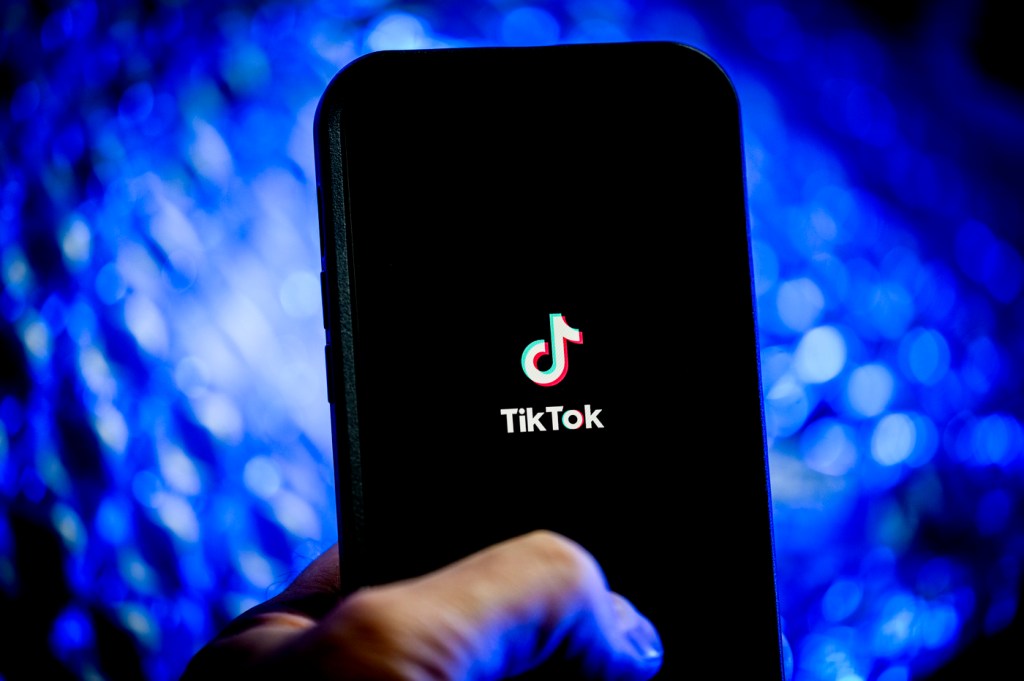Why the music of Taylor Swift and others
might disappear from TikTok
One expert calls the move a “masterful PR stroke” on the part of Universal Music Group because it positions the company favorably, while spotlighting the growing concerns around how AI is upending the industry.

Universal Music Group, a label repping music giants like Taylor Swift, Billie Eilish and Ariana Grande, could be headed for a dramatic breakup with social media behemoth TikTok.
The record label company said it would be pulling its music from TikTok at the end of the day Wednesday after a new deal with TikTok’s Chinese parent company, ByteDance, could not be reached.
The main sticking point is royalties — the money musicians receive every time a song is played — though it also cited concerns over AI-generated content and hate speech on the platform.
“This is a really big deal,” says Melissa Ferrick, a seasoned recording artist, producer, and songwriter who teaches music business and songwriting courses at Northeastern University.
In 2021, Universal Music Group signed a deal with TikTok that gave its 1.5 billion monthly users access to a repository of recordings. The record label profits off licensing those recordings and the associated intellectual property — not just to platforms such as TikTok, whose content creators can then use them in their videos, but to streaming services, TV and movie producers, among other interested parties.
The group pays royalties to its artists through royalty reporting systems that it says “provides detailed royalty data to our artists.”
Universal taking a stand on behalf of artists
While acknowledging TikTok’s position, Ferrick says she views the rift as Universal Music Group taking a stand on behalf of artists.
“TikTok has a point, though: this is 100% free advertising for the record labels, for the artists, for the songs,” she says.
David Herlihy, a teaching professor in the music industry program at Northeastern, says what happens next is unclear. He calls the move a “masterful PR stroke” on the part of Universal Music Group because it positions the company favorably — as advocating on behalf of its artists — while spotlighting the growing concerns around how AI is upending the industry.
“Universal Music Group, along with other labels, finds itself in a showdown with AI, and the prospect that all kinds of musical content can be made without the need for human beings,” Herlihy says.
The label claims that the deal proposed by TikTok would have offered “a rate that is a fraction of the rate that similarly situated major social platforms pay.”
“Today, as an indication of how little TikTok compensates artists and songwriters, despite its massive and growing user base, rapidly rising advertising revenue and increasing reliance on music-based content, TikTok accounts for only about 1% of our total revenue,” the label said in a statement.
Promotional, discovery vehicle?
TikTok countered by saying that its platform has served as “a free promotional and discovery vehicle for their talent,” and that “Universal Music Group has put their own greed above the interests of their artists and songwriters.”
Should the situation remain a stalemate, some experts don’t anticipate that the sheer amount of user-generated content will fundamentally tick down much — although it’ll be hard to gauge.
“I don’t think it’s going to affect TikTok that much,” Herlihy says. “However, the absence of Taylor Swift music from TikTok could cause some problems for the platform. Taylor Swift is kind of Universal Music’s ace-up-their sleeve. If people can’t make videos with Taylor’s music, there could be a backlash.”
Featured Posts
Songs are trending shorter
James Gutierrez, an assistant teaching professor and coordinator of first-year experience in Northeastern’s music department, says that the popularization of TikTok has changed the way musicians and songwriters go about making music.
Because of the platform’s short-form nature, aspiring artists are tailoring their music to fit the attention of users accustomed to 30-second videos.
“It nurtures the creation of a different kind of music,” Gutierrez says. “Songs have generally been about 3-5 minutes in length, … the average length is tending shorter and shorter every year. Since platforms like Spotify and TikTok are paid per play, not length, music is less and less about producing concert or album length works.”
With the rise of platforms like TikTok and Spotify, which only pays royalties after 30 seconds of listening, Gutierrez says aspiring artists are trying to hook users right away.
Disagreement could stifle artists
Gutierrez says that the disagreement could stifle artists and creators. But he points to the widespread use of AI on the platform as the crux of the issue.
Creators have been using AI voice cloning software, for example, to create viral content from songs by artists, such as Drake and Taylor Swift. The use of a celebrity artist’s likeness on TikTok can yield millions of page views for users, according to The Verge.
“To date, this deal is the biggest manifestation of that ancient debate between the freedom of expression and intellectual property,” Gutierrez says.






